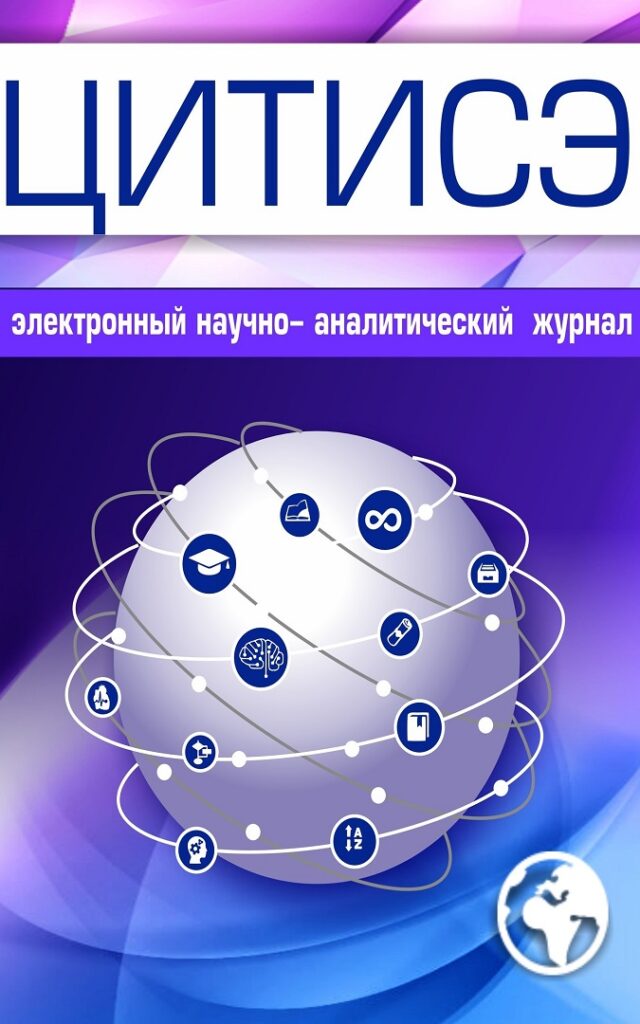Kretinin A.S.
INDIVIDUAL AND SOCIETY IN CONDITIONS OF TRANSFORMATION OF MODERN CIVILIZATION IN THE BEGINNING OF THE XXI CENTURY
Research Full Article
UDC 316.4
Abstract. Social space is structured objectively (by existing social relations) and subjectively (people’s ideas about the world around them). People characterized as agents of the social process produce practices and, through them, influence the change in the social structure. This is the main indicator of their social and individual-personal subjectivity. This article deals with the problems of preservation and development of human vitality, social space at the beginning of the XXI century. The emergence of the basic categories of sociology of the life path, as well as objectively subjective ideas of people about the world around them, is a natural consequence of the self-development of the science of society and social practice. Methods. Methods of historical analysis, methods of system analysis, methods of semantic and sociological analysis, content analysis were used. Results. The main causes of problems between man and society in the context of the transformation of modern civilization are formulated. Conclusions. Mass privatization led to the fact that values, ideology and politics were returned to the socio-historical time of the era of primitive capitalist accumulation, the “wild market”. Western sociology seeks and creates scientific constructs that defend, preserve, and institutionalize the hegemony of the ideological Western worldview.
Keywords: evolution, sociology of vitality, man, society, social knowledge, social space.
References:
- Grigoriev S.I., Guslyakova L.G., Govorukhina G.V. Noospheric sociology of vital forces, well-being of a person and society – the conceptual basis of social work in the XXI century. Level of life of the population of regions of Russia, 2018, no. 4 (210), pp. 121-126. (In Russian).
- Grigoriev S.I. Social culture, social education and social work in modern Russia: ways of self-determination. Domestic Journal of Social Work, 2021, no. 3 (86), pp. 73-83. (In Russian).
- Egorychev A.M., Kretinin A.S., Sarychev A.S. Ideology, integration processes and forecasting: opportunities and prospects for the development of the state and society. CITISE, 2022, no. 3 (33), pp. 459-472. (In Russian).
- Rostovskaya T.K., Egorychev A.M., Gulyaev S.B. Contacts of social life: the role and influence on the formation of a harmonious person and a happy society. Alma Mater (Bulletin of Higher School), 2021, no. 5, pp. 76-82. (In Russian).
- Egorychev A.M. Social justice: myth or reality? Bulletin of the Educational and Methodological Association of Russian Universities for Education in the Field of Social Work, 2009, no. 3, pp. 49-52. (In Russian).
- Evseev V.O. New formation of Russia in the conditions of network geopolitics. GosReg: state regulation of public relations, 2016, no. 2 (16), pp. 15. (In Russian).
- Gumilyov L.I. Ethnogenesis and biosphere of the Earth. Moscow, AST Publ., 2019. 704 p. (In Russian). ISBN: 978-5-17-113052-7
- Weber M. Understanding sociology. Moscow, AST Publ., 2012. 480 p. (In Russian). ISBN: 978-5-17-135706-1
- Weber M. Favorites: The Image of Society. Moscow, Center for Humanitarian Initiatives Publ., 2012. 768 p. (In Russian). ISBN: 978-5-98712-085-9
- Luman N. Society of society. Moscow, Logos Publ., 2011. 640 p. (In Russian). ISBN: 978-5-8163-0091-9
- Bourdieu P. Sociology of social space. St. Petersburg, Aleteyya Publ., 2005. 288 p. (In Russian). ISBN 5-89329-762-8
- Bourdieu P. Practical meaning. St. Petersburg, Aleteyya Publ., 2001. 562 p. (In Russian). ISBN 5-89329-351-7


